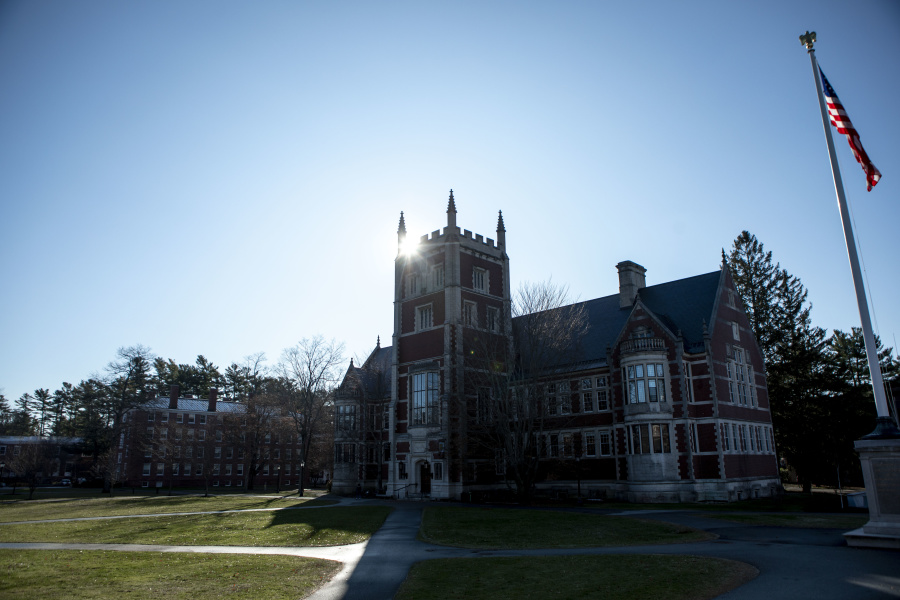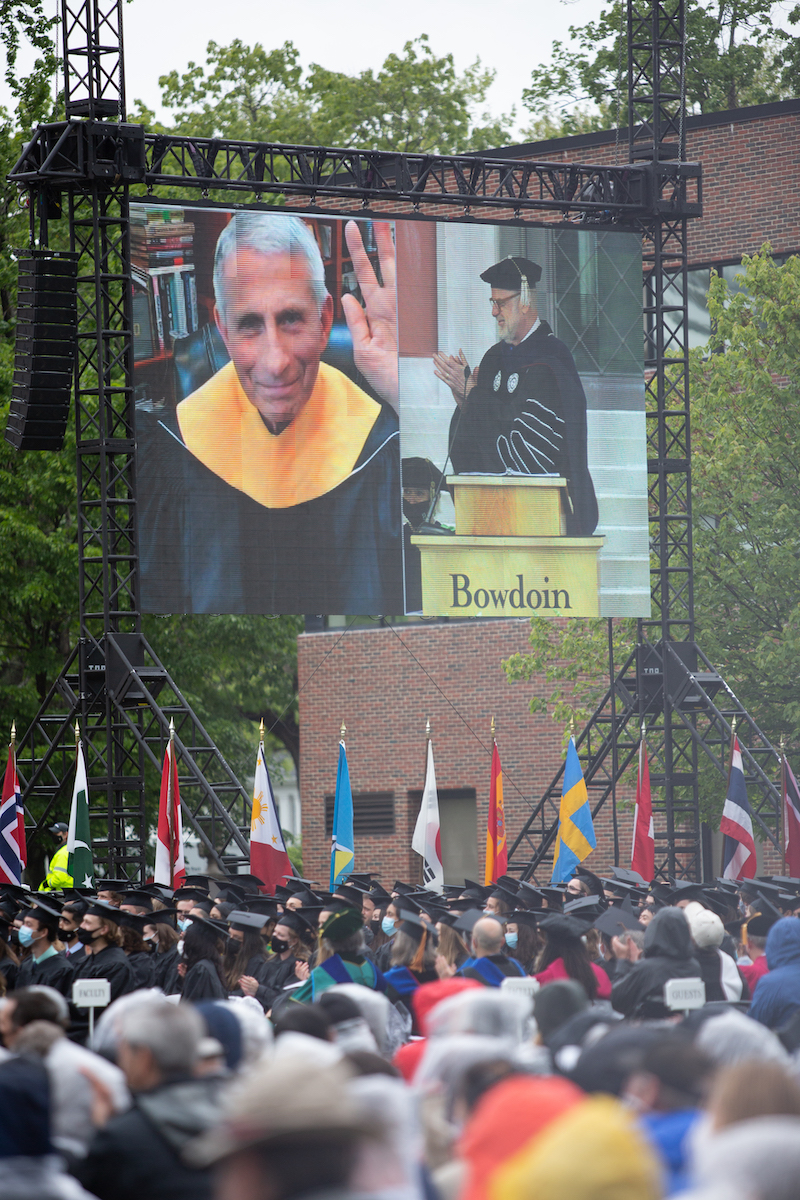Bowdoin Students Mix Oscar Night with Politics

Oscar night is often called the biggest night in Hollywood, but it was also a big night at Bowdoin. Three student organizations — the Bowdoin Film Society, African American Society and Ranked Choice Voting Bowdoin — joined together to make this Oscar Sunday festive, and quite informative.
While free Chinese food and big-screen Oscars screening in Sills-Smith Auditorium are an annual tradition at Bowdoin, this is the first year that a discussion of ranked-choice voting has been part of the evening.
So, what does ranked-choice voting have to do with the Oscars? According to Ranked Choice Voting club president Damian Ramsdell ’17, this is how the academy selects its winners. And this year, this system of voting has particular relevance to Maine politics. Mainers will vote in November whether to make ranked-choice the way of choosing officials in state and national elections. The nonpartisan group Ranked Choice Voting Bowdoin was founded this semester to help advocate for the passing of Maine’s referendum.
The event’s organizers also drew attention to this year’s notable lack of minority nominees for any Oscars. Sewheat Asfaha ’16, a member of the African American Society, praised Oscar host Chris Rock for highlighting the issue so adroitly. “Chris Rock’s opening was really funny and hit all the important points. I like that he wasn’t afraid to make the audience uncomfortable, especially because it would have been easy to leave race out of his jokes,” she said.
Using pizza topping preferences and balloons to explain ranked-choice voting his point, Ramsdell demonstrated how this system could be used to allow voters to select their most preferred pizza. Voters rank their choices and the candidate with the fewest votes at the end is eliminated. The second choice of voters who chose the eliminated candidate are then counted. This process continues until one candidate (or pizza topping) has over 50 percent of the vote. “The net effect of ranked choice voting is it lets people choose the candidate they want without the risk of helping the ones they don’t want,” said Ramsdell.
With a more nuanced understanding of the nomination process used for the Oscars and Maine’s proposed voting system, the audience enjoyed the remainder of the evening by eating Chinese food, vying for their favorite films of the year in Bowdoin Film Society’s Oscar pool, and reveling in Leonardo DiCaprio’s first Oscar win.







